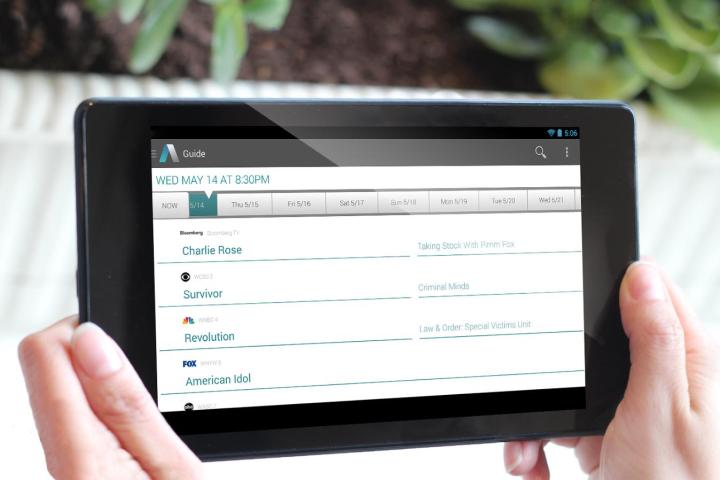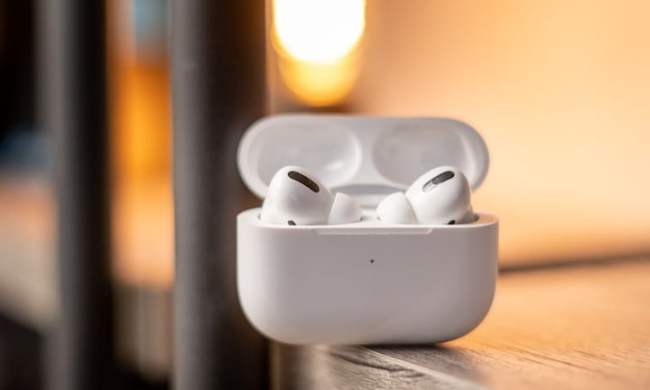
The verdict is in and it’s against Aereo. The U.S. Supreme Court ruled 6-3 for broadcasters, reversing a lower court decision that supported Aereo. The court declared that the streaming service, which gives users access to local TV channels via antennas, violated live TV stations’ copyrights.
Aereo uses a system of super small HD antennas that capture broadcast TV over the airwaves. Once it has the signal, Aereo’s technology then transmits the signal over the Internet for users to watch on their smartphones, tablets, or TVs via Chromecast. The company also provides a cloud DVR service so that its customers can record content. This content is recorded per user and can not be shared.
Typically, those who wish to re-broadcast network television content must ask permission and obtain licenses first. Aereo did not ask for permission, arguing that the TV broadcasts it sent to individual people’s devices are private performances, not public ones, which is ostensibly protected under the Copyright Act of 1976. The TV networks disagreed with Aereo’s point of view, however, as did the Supreme Court.
Cable and satellite providers have to pay fees to show local broadcast channels. Cable providers argued that if they have to pay retransmission fees, then Aereo should have to as well. Cable providers and network broadcasters alike claimed that the company’s refusal to do so makes Aereo’s service illegal. Aereo claimed that its system of renting antennas and DVR storage to customers is exactly the same as any cable company that rents equipment to users, therefore, its service is perfectly legal.
Cable providers argued that if they have to pay retransmission fees, then Aereo should have to as well.
Justice Stephen Breyer wrote the majority opinion. Chief Justice John Roberts, Justices Anthony Kennedy, Ruth Bader Ginsburg, Sonia Sotomayor, and Elena Kagan all voted against Aereo, too. Justice Antonin Scalia, who wrote the dissenting opinion, was supported by Justices Clarence Thomas and Samuel Alito in his opinion that Aereo’s service is legal.
In his written opinion of the ruling, Scalia likened Aereo to a copy shop that simply reproduces copyrighted content and as such, isn’t liable for copyright infringement.
“The Networks sued Aereo for several forms of copyright infringement, but we are here concerned with a single claim: that Aereo violates the Networks’ ‘exclusive righ[t]’ to ‘perform’ their programs ‘publicly.’ 17 U. S. C. §106(4). That claim fails at the very outset because Aereo does not ‘perform’ at all. The Court manages to reach the opposite conclusion only by disregarding widely accepted rules for service-provider liability and adopting in their place an improvised standard (‘looks-like-cable-TV’) that will sow confusion for years to come,” Scalia wrote.
Scalia also argued that Aereo is different from other video-streaming services that pay licensing fees for content because the shows streamed by each user are not preselected by the company. Instead, the users decide what content they watch using the antenna rented from Aereo. Scalia believes that as such, Aereo is not responsible for the actions of its subscribers.

The majority opinion also addressed this issue with the argument that Aereo is indeed liable for infringement because it provides access to copyrighted TV programs.
“Aereo is not simply an equipment provider,” Breyer wrote. “Aereo sells a service that allows subscribers to watch television programs, many of which are copyrighted, virtually as they are being broadcast.”
TV providers are already hailing the ruling as a great leap forward for the industry. 21st Century Fox issued a statement celebrating the decision.
“21st Century Fox welcomes the U.S. Supreme Court’s ruling, a decision that ultimately is a win for consumers that affirms important copyright protections and ensures that real innovation in over-the-top video will continue to support what is already a vibrant and growing television landscape,” the company said.
The fallout
So what does this mean, both for Aereo, and for the future of the rapidly evolving media landscape?
For Aereo, the future is grim at best. The company’s CEO, Chet Kanojia, made it clear on several occasions leading up to today’s decision that Aereo would have no choice but to immediately close up shop were the Supreme Court to rule in favor of the broadcasters. And while Kanojia appeared to keep the door open a crack in a written statement today, saying, “We are disappointed in the outcome, but our work is not done,” founding investor Barry Diller put things more succinctly.
Speaking to CNBC about the decision today, Diller said, “We did try, but it’s over now.”
“It’s not a big [financial] loss for us, but I do believe blocking this technology is a big loss for consumers, and beyond that I only salute Chet Kanojia and his band of Aereo’lers for fighting the good fight,” he said.
Even if the service chose to continue, the cost in actual dollars and cents of going ‘legit’ and paying content providers for all copyrighted content would likely be too much for the service to bear – at least under its current form, which charges users $12 a month for its most expensive package.
But Aereo aside, fears about today’s decision have always been bigger than one service, or copycat services like FilmOn. As Aereo has done repeatedly leading up to the decision, its official response today once again voiced concerns about the ruling’s impact on the innovation of industry as a whole.
“Today’s decision by the United States Supreme Court is a massive setback for the American consumer,” Kanojia said. “We’ve said all along that we worked diligently to create a technology that complies with the law, but today’s decision clearly states that how the technology works does not matter. This sends a chilling message to the technology industry.”
Kanojia and others have consistently expressed concern for the entire OTT (over the top) TV landscape, which is still in its infancy. We may yet see consequences affecting the legality of services like TiVo, as well as new services that employ “timeshifting” of broadcast TV such as Tablo, or Simple TV boxes. CEA President and CEO Gary Shapiro, a major lobbyist for technological innovation, released a statement regarding his concerns about the rulings effects on the future of innovation, as well.
Addressing the Court’s assertion that innovators should “seek action from Congress” to change copyright law in order to present new technologies Shapiro writes, “We believe laws should be clear and favor innovation. Innovators should not have to get ambiguous laws changed to give consumers new products and services.”
He continued to gage his concerns more specifically about the future of broadcast TV, calling out the major broadcasters which use the public broadcasting spectrum for free.
“Given that consumers are increasingly choosing to view content ‘anytime/anywhere’ on smart phones and tablets, and only six percent of Americans rely exclusively on free over-the-air television, we question how much longer broadcasters can claim to justify their use of public spectrum when they oppose innovative services like Aereo which expand their viewing audience.”
More broadly, Justice Scalia said in his dissenting argument that the Court’s ruling also has the potential to reach even further into cloud storage as a whole.
“The Court vows that its ruling will not affect cloud-storage providers and cable television systems…but it cannot deliver on that promise given the imprecision of its results-driven rule.”
Just how far the impact of today’s ruling will reach remains to be seen. Regardless of how you look at it, though, one thing is certain: The Supreme Court’s decision against Aereo will have lasting implications for technology, and the entire entertainment industry as a whole.
Developing…
Updated by Ryan Waniata 6/25/2014 12:40 PM PST: This article has been updated to include Aereo’s response to the Supreme Court decision, as well as a response from CEA President and CEO Gary Shapiro


